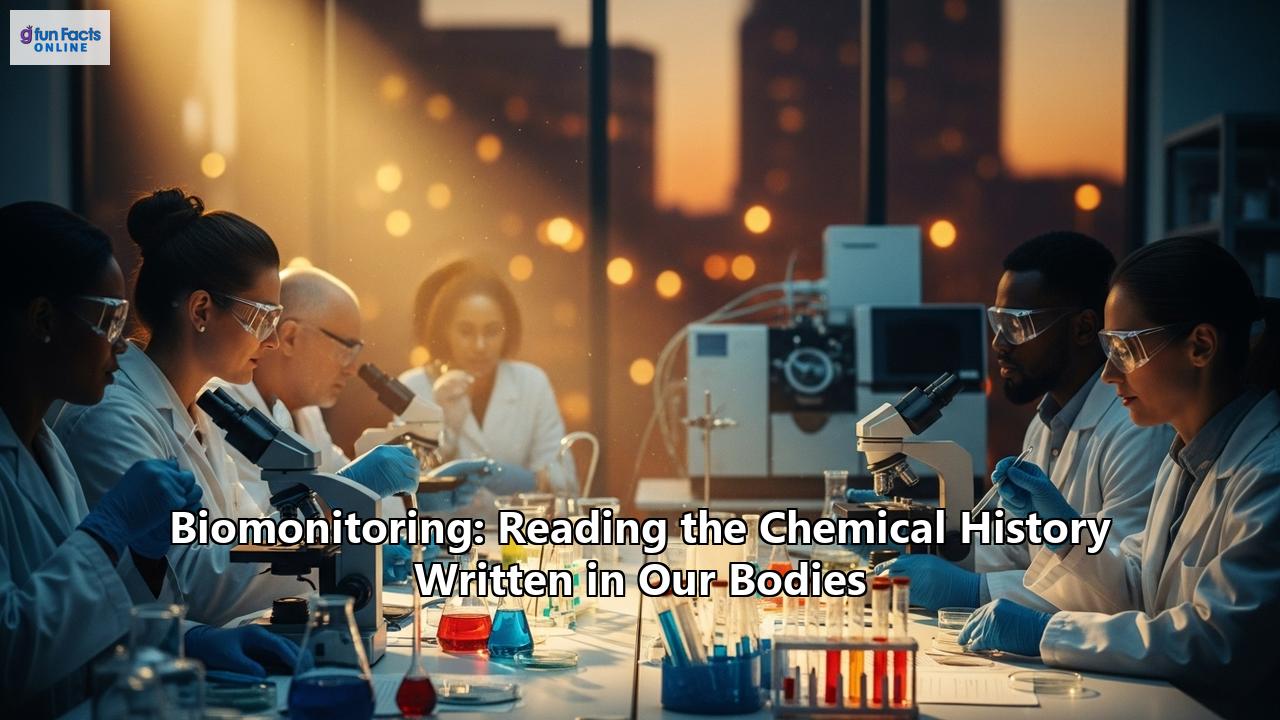growing public awareness of the intimate and often unsettling connection between our environment and our health. The chemical history written in our bodies is a complex and ever-evolving narrative, one that speaks of both progress and peril.
We have seen how this powerful science has brought about landmark public health victories, such as the dramatic reduction in lead exposure, and how it has borne witness to environmental tragedies like Minamata. We have explored the intricate ways in which our bodies archive our chemical encounters, from the fleeting record in our urine to the enduring legacy in our teeth. And we have grappled with the profound ethical questions that arise when we have the power to read this intimate history.
The future of biomonitoring is one of both immense promise and formidable challenges. As we continue to develop new technologies and new ways of understanding the data they provide, we will undoubtedly uncover new insights into the environmental drivers of health and disease. But we will also be confronted with new ethical dilemmas and new responsibilities.
Ultimately, the story that biomonitoring tells is not just a chemical one; it is a human one. It is a story about our relationship with the world around us, a story about the choices we make as a society, and a story about our shared responsibility to protect the health of this generation and the generations to come. The chemical history written in our bodies is a story that we are all a part of, and one that we all have the power to help rewrite.
Reference:
- https://www.mackinac.org/S2008-01
- https://pmc.ncbi.nlm.nih.gov/articles/PMC3249606/
- https://www.safecosmetics.org/resources/health-science/measuring-chemicals-in-people/
- https://www.researchgate.net/figure/Frameworks-for-Communicating-Biomonitoring-Results_tbl1_24145146
- https://www.worldwildlife.org/places/congo-basin/
- https://science.rsu.lv/en/publications/human-biomonitoring-initiative-future-for-human-exposure-assessme/
- https://www.epa.gov/expobox/exposure-assessment-tools-approaches-exposure-reconstruction-biomonitoring-and-reverse
- https://www.mdpi.com/journal/toxics/special_issues/AK47779U0F
- https://beyondpesticides.org/dailynewsblog/2025/10/childhood-prenatal-pesticide-exposure-impacts-immune-system-according-to-study/
- https://verdicraft.com/privacy-rights-in-electronic-monitoring/
- https://www.researchgate.net/publication/6537812_Ethical_issues_related_to_biomonitoring_studies_on_children
- https://www.niehs.nih.gov/research/resources/bioethics/whatis
- https://pmc.ncbi.nlm.nih.gov/articles/PMC1552022/
- https://insideepa.com/daily-news/industry-increasingly-looks-biomonitoring-data-guide-epa-policy
- https://www.mdpi.com/2305-6304/11/2/168
- https://www.youtube.com/watch?v=U9j-etT61I0
- https://www.newsweek.com/us-preschoolers-exposed-potentially-harmful-chemicals-study-2093588
- https://oshwiki.osha.europa.eu/en/themes/biological-monitoring-biomonitoring
- https://www.youtube.com/watch?v=eXmbcqUJt7k
- https://www.mackinac.org/archives/2008/s2008-01.pdf
- https://pubmed.ncbi.nlm.nih.gov/16473444/
- https://pubmed.ncbi.nlm.nih.gov/24886515/
- https://www.food-safety.com/articles/10815-french-food-safety-agency-proposes-pfas-monitoring-scheme
- https://pmc.ncbi.nlm.nih.gov/articles/PMC12167361/
- https://www.researchgate.net/publication/355845755_Monitoring_of_emerging_contaminants_of_concern_in_the_aquatic_environment_A_review_of_studies_showing_the_application_of_effect-based_measures
- https://academic.oup.com/ieam/article-pdf/18/3/597/59448773/ieam4599.pdf
- https://www.eopugetsound.org/sites/default/files/features/resources/CEC_Prioritization_White_Paper_2015-02-28.pdf
- https://www.researchgate.net/publication/51918825_Interpreting_Human_Biomonitoring_Data_in_a_Public_Health_Risk_Context_Using_Biomonitoring_Equivalents
- https://pubmed.ncbi.nlm.nih.gov/31176761/
- https://pmc.ncbi.nlm.nih.gov/articles/PMC8066005/
- https://www.hbm4eu.eu/
- https://www.youtube.com/watch?v=Apjebtal8bQ
- https://stories.tamu.edu/news/2021/07/09/individual-privacy-and-big-data-uses-in-public-health/
- https://archive.cdc.gov/
- https://pmc.ncbi.nlm.nih.gov/articles/PMC9568319/

